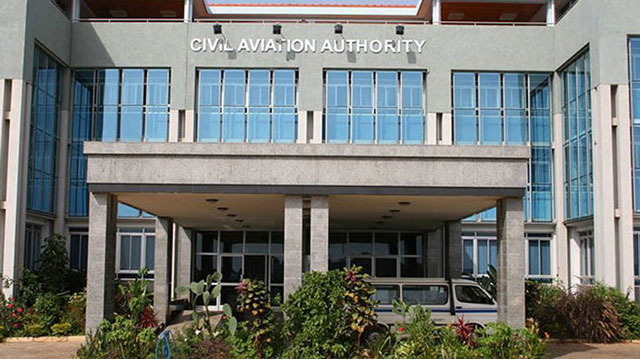
COMMENT | SAMUEL MASEREKA AMIRALE | In the complex realm of civil aviation, the intertwining roles of regulatory bodies and service providers can create significant conflicts of interest. When a Civil Aviation Authority (CAA) takes on the dual responsibility of regulating the industry while also operating as a service provider, the potential for biased decision-making, unfair competition, and compromised safety standards becomes apparent.
In 2017, the Ugandan Parliament attempted to pass the Uganda Civil Aviation Authority (Amendment) Bill, which aimed to separate the regulatory and operational functions of the Civil Aviation Authority of Uganda. The bill was introduced to mitigate conflicts of interest and enhance transparency within the aviation industry. By establishing a clear separation between the regulatory body and the service provider, Uganda aimed to align its practices with international standards and promote fair competition within the aviation sector.
- Regulatory Bias and Unfair Competition: When a CAA operates its own airline or provides aviation services, there is a risk of formulating regulations that favor its services over competitors. This bias can stifle healthy competition, limit consumer choices, and hinder the growth of other airlines. For instance, Air India, owned by the Indian government, faced criticism for allegedly receiving preferential treatment from the Directorate General of Civil Aviation (DGCA), leading to an uneven competitive landscape.One notable example of regulatory bias and unfair competition occurred in India. The Comptroller and Auditor General (CAG) of India’s report in 2011 highlighted that the Directorate General of Civil Aviation (DGCA) failed to enforce safety norms effectively. This lax enforcement was particularly evident in the case of Air India, the state-owned airline. The report indicated that despite several safety violations, the DGCA did not penalize Air India adequately, raising concerns about preferential treatment and unfair competition within the Indian aviation industry.
- Compromised Safety Standards: Ensuring aviation safety is paramount, but a conflict of interest can compromise this vital aspect. A CAA might be lenient when inspecting its own aircraft or facilities, neglecting necessary regulations to maintain a competitive edge. Russia’s Rosaviatsia, which oversees civil aviation, also operates airlines, raising concerns about the impartiality of safety inspections and regulatory enforcement. In Russia, the conflict of interest between regulatory oversight and airline operations was evident with Rosaviatsia, the regulatory authority and operator. A crash in 2013 involving Tatarstan Airlines, a company regulated by Rosaviatsia, raised questions about the authority’s effectiveness. Investigations revealed inadequate safety measures and lack of stringent regulatory enforcement. This incident underscored concerns about compromised safety standards due to the dual role of the regulator as an operator.
- Lack of Transparency and Accountability: Conflicts of interest can lead to a lack of transparency and accountability within the regulatory process. Decisions regarding licensing, route allocations, and safety certifications might lack transparency, fostering an environment where favoritism and nepotism can thrive. This opacity erodes public trust and confidence in the aviation industry. The case of Nepal’s Civil Aviation Authority (CAA) highlighted issues of transparency and accountability. In 2018, a parliamentary investigation found irregularities in the procurement process and financial mismanagement within the CAA. These findings raised concerns about a lack of transparency and accountability, leading to doubts about the fairness of regulatory decisions and the authority’s ability to operate independently.
- Economic Implications: When a CAA’s service provider arm receives preferential treatment, it can distort market dynamics, affecting the economic health of the entire aviation sector. Unfair competition can lead to market monopolization, reduced investments from private players, and hinder the growth of a vibrant and competitive aviation industry. The economic implications of conflicts of interest were evident in the case of Air Malta. As a state-owned airline and the flag carrier of Malta, Air Malta faced financial challenges, leading to concerns about its impact on the country’s economy. The government’s decision to provide continuous financial support to the airline, despite its struggling financial performance, raised questions about market distortion and the economic consequences of favoring a state-owned carrier over private competitors .
- Potential Solutions: To mitigate conflicts of interest, clear separation between regulatory and operational functions is essential. Independent regulatory bodies, such as the Federal Aviation Administration (FAA) in the United States, exemplify the importance of autonomy. By focusing solely on regulation and oversight without engaging in commercial aviation services, these entities can maintain objectivity and impartiality, ensuring a level playing field for all industry participants.
While the bill represented to Ugandan parliament was a significant step toward addressing conflicts of interest within Uganda’s Civil Aviation Authority, it also highlighted the global recognition of the need for clear delineation between regulatory oversight and operational activities. This legislative effort demonstrated the Ugandan government’s commitment to fostering a competitive and safe aviation industry, free from undue influence and bias arising from conflicting roles within the regulatory body.unfortunately it was not passed.
In conclusion, the dual role of a Civil Aviation Authority as a regulator and service provider presents significant challenges. To foster a competitive, safe, and transparent aviation industry, it is imperative to establish robust mechanisms that prevent conflicts of interest. Clear separation of regulatory and operational functions, coupled with stringent oversight and accountability measures, is crucial to preserving the integrity of civil aviation worldwide.
*****
 The Author, Samuel Masereka Amirale is an accomplished and detail-oriented professional with background in Mechanical Engineering, Aircraft Maintenance, Aviation Management, Flight Operation, Quality and safety, and regulatory compliance. With a wealth of experience spanning multiple roles, including Senior Airworthiness Inspector at Uganda Civil Aviation Authority, Quality Manager at Bar Aviation Limited and Aircraft Mechanic at KLM Royal Dutch Airlines. Amirale is currently pursuing an MSc in International Transport, Trade, and Logistics from Liverpool John Moore University.
The Author, Samuel Masereka Amirale is an accomplished and detail-oriented professional with background in Mechanical Engineering, Aircraft Maintenance, Aviation Management, Flight Operation, Quality and safety, and regulatory compliance. With a wealth of experience spanning multiple roles, including Senior Airworthiness Inspector at Uganda Civil Aviation Authority, Quality Manager at Bar Aviation Limited and Aircraft Mechanic at KLM Royal Dutch Airlines. Amirale is currently pursuing an MSc in International Transport, Trade, and Logistics from Liverpool John Moore University.
 The Independent Uganda: You get the Truth we Pay the Price
The Independent Uganda: You get the Truth we Pay the Price



